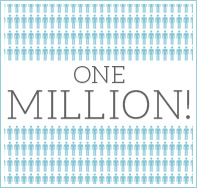by Siegfried Othmer | October 19th, 2016
By Siegfried Othmer, PhD

The rapid rise in overdose deaths due to heroin is of frightening dimensions, showing an increase by a factor of six just since 2000. This is shown in Figure 1. Even so, this death rate is eclipsed by the overdose death rate for prescription opioids by nearly a factor of two (see Figure 2). Of course the two trends are closely coupled. It was in response to the overdose from prescription drugs that the campaign was launched to reign in the level of prescribing, and the user population is now finding its refuge in the heroin market.
Read More »
Posted in Neurofeedback | No Comments »
by Siegfried Othmer | September 29th, 2016
By Siegfried Othmer, PhD

“Do you believe in acupuncture?”
“Why yes. I’ve actually seen it done.”
The August issue of Scientific American not only featured a diatribe against facilitated communication, but also one against acupuncture. Really? Acupuncture? The article starts off by reminding us of how acupuncture first came to the attentions of the wider American public. Nixon’s visit to China in 1971 was the occasion. The use of acupuncture on columnist James Reston for post-operative pain was the signal event. The American medical establishment was resolutely uninterested, however, speculating that the Chinese might just be uniquely suggestible people. Americans would never fall for that kind of nonsense. But then they did.
Read More »
Posted in Neurofeedback | 1 Comment »
by Siegfried Othmer | September 19th, 2016
By Siegfried Othmer, PhD
 In the August edition of Scientific American, professional skeptic Michael Schermer took on facilitated communication (FC) for autistic children, a tactic that had been thoroughly discredited in a Frontline piece on PBS back in 1993 entitled “Prisoners of Silence.” Sue Othmer and I had watched that episode at the time, and our reaction was very much the same as Michael Schermer’s. When FC was evaluated under controlled conditions, some facilitators were playing a larger role than they should have, and what appeared on the letter board was often the fulfillment of their own expectations rather than the wishes of the autistic child. In their zeal to demonstrate to the scientists just how useful FC could be, they had in fact achieved the very opposite.
In the August edition of Scientific American, professional skeptic Michael Schermer took on facilitated communication (FC) for autistic children, a tactic that had been thoroughly discredited in a Frontline piece on PBS back in 1993 entitled “Prisoners of Silence.” Sue Othmer and I had watched that episode at the time, and our reaction was very much the same as Michael Schermer’s. When FC was evaluated under controlled conditions, some facilitators were playing a larger role than they should have, and what appeared on the letter board was often the fulfillment of their own expectations rather than the wishes of the autistic child. In their zeal to demonstrate to the scientists just how useful FC could be, they had in fact achieved the very opposite.
Read More »
Posted in Neurofeedback | No Comments »
by Siegfried Othmer | August 29th, 2016
By Siegfried Othmer, PhD
 Recently a study showed that some people react badly to statins. Statins have been in use for twenty years, and if some people respond badly to them, then that has also been a fact for about the same number of years. So why was a study needed? And if a study was needed, why did that same reasoning not prevail many years ago? It’s surely not that the facts have been changing. Rather, it was becoming increasingly difficult to ignore the facts that we have already known all along.
Recently a study showed that some people react badly to statins. Statins have been in use for twenty years, and if some people respond badly to them, then that has also been a fact for about the same number of years. So why was a study needed? And if a study was needed, why did that same reasoning not prevail many years ago? It’s surely not that the facts have been changing. Rather, it was becoming increasingly difficult to ignore the facts that we have already known all along.
Read More »
Posted in ADD / ADHD, Neurofeedback | No Comments »
by Siegfried Othmer | August 8th, 2016
By Siegfried Othmer, PhD
 It is probably worth observing that sometime over the past several years the milestone was undoubtedly passed in which the one millionth person benefited from one or another of our neurofeedback protocols, implemented on one or another of our three generations of neurofeedback systems: NeuroCybernetics, EEGer, and Cygnet. It’s difficult to be too precise about these estimates, in contrast to counting hamburgers at McDonalds! So the estimate is deliberately a conservative one.
It is probably worth observing that sometime over the past several years the milestone was undoubtedly passed in which the one millionth person benefited from one or another of our neurofeedback protocols, implemented on one or another of our three generations of neurofeedback systems: NeuroCybernetics, EEGer, and Cygnet. It’s difficult to be too precise about these estimates, in contrast to counting hamburgers at McDonalds! So the estimate is deliberately a conservative one.
Read More »
Posted in Neurofeedback, Protocols | No Comments »
by Siegfried Othmer | June 9th, 2016
By Siegfried Othmer, PhD
 If the placebo is such a big deal, why is it not being diligently studied? Why is the ‘cause’ of the placebo ‘effect’ not being looked for? If this is such a huge factor that it governs all drug studies, surely it deserves some attention in its own right.
If the placebo is such a big deal, why is it not being diligently studied? Why is the ‘cause’ of the placebo ‘effect’ not being looked for? If this is such a huge factor that it governs all drug studies, surely it deserves some attention in its own right.
Read More »
Posted in Neurofeedback, Placebo | 7 Comments »











